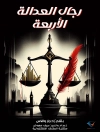Loneliness has many faces – it can be a moment of sadness and the result of bad choices or some abandonment, but it can also arise as a gift for us to enjoy our own company, seize the silence and meditate on life.
The critic August Nemo has selected for this book seven short stories by great authors that explore the different ways of experiencing loneliness.
This book contains:
– Miss Brill by Katherine Mansfield.
– Vanka by Anton Chekhov.
– The Door in the Wall by H. G. Wells.
– Kew Gardens by Virginia Woolf.
– The Bet by Anton Chekhov.
– A Painful Case by James Joyce.
– The Boarded Window by Ambrose Bierce.
For more books with interesting themes, be sure to check the other books in this collection!
About the author
Kathleen Mansfield Murry was a prominent New Zealand modernist short story writer and poet who was born and brought up in colonial New Zealand and wrote under the pen name of Katherine Mansfield. At the age of 19, she left New Zealand and settled in England, where she became a friend of writers such as D. H. Lawrence and Virginia Woolf. Mansfield was diagnosed with extrapulmonary tuberculosis in 1917; the disease claimed her life at the age of 34.
Anton Pavlovich Chekhov was a Russian playwright and short-story writer, who is considered to be among the greatest writers of short fiction in history. His career as a playwright produced four classics, and his best short stories are held in high esteem by writers and critics. Along with Henrik Ibsen and August Strindberg, Chekhov is often referred to as one of the three seminal figures in the birth of early modernism in the theatre. Chekhov practiced as a medical doctor throughout most of his literary career: ‘Medicine is my lawful wife’, he once said, ‘and literature is my mistress.’
Herbert George Wells was an English writer. He was prolific in many genres, writing dozens of novels, short stories, and works of social commentary, history, satire, biography, and autobiography, and even including two books on recreational war games. He is now best remembered for his science fiction novels and is often called the ‘father of science fiction’, along with Jules Verne and Hugo Gernsback. Wells was nominated for the Nobel Prize in Literature four times.
James Augustine Aloysius Joyce was an Irish novelist, short story writer, poet, teacher, and literary critic. He contributed to the modernist avant-garde and is regarded as one of the most influential and important authors of the 20th century. Although most of his adult life was spent abroad, Joyce’s fictional universe centres on Dublin and is populated largely by characters who closely resemble family members, enemies and friends from his time there.
Adeline Virginia Woolf was an English writer, considered one of the most important modernist 20th-century authors and also a pioneer in the use of stream of consciousness as a narrative device. Woolf became one of the central subjects of the 1970s movement of feminist criticism and her works have since garnered much attention and widespread commentary for ‘inspiring feminism.’
Ambrose Gwinnett Bierce was an American short story writer, journalist, poet, and Civil War veteran. A prolific and versatile writer, Bierce was regarded as one of the most influential journalists in the United States, and as a pioneering writer of realist fiction.












